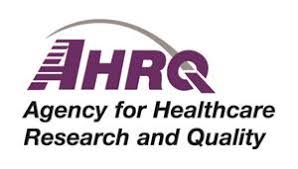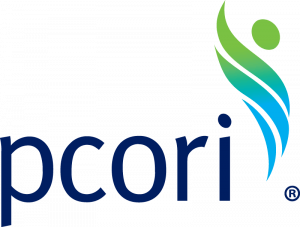 AHRQ Seeks Public Comment on Cervical Degenerative Disease Treatment
AHRQ Seeks Public Comment on Cervical Degenerative Disease Treatment
The Agency for Healthcare Research and Quality is seeking public comment related to treatments for cervical degenerative disease. The agency is seeking answers to a long list of key and contextual questions, including, among others:
- What is the prevalence of cervical degenerative disease with spinal cord compression in asymptomatic patients?
- What is the natural history of untreated spinal cord compression in patients with cervical degenerative disease?
- In patients with cervical degenerative disease, what are the comparative effectiveness and harms of surgical compared to non-operative treatment?
- In patients with radiographic spinal cord compression and mild to severe myelopathy, what is the effectiveness and harms of surgery versus non-operative treatment or no treatment? How do the effectiveness and harms vary by level of severity of myelopathy at the time of surgery?
Answers to the questions posed by AHRQ are due no later than September 12, 2022.
PCORI Seeks Applications and Nominations for Advisory Panels
 The Patient-Centered Outcomes Research Institute (PCORI) will be accepting applications and nominations for its five Advisory Panels for the 2022-23 cycle from September 1, 2022 to March 31, 2023. PCORI is the leading funder of patient-centered comparative clinical effectiveness research in the United States, and one way they include voices from across the healthcare community is through their Advisory Panels on:
The Patient-Centered Outcomes Research Institute (PCORI) will be accepting applications and nominations for its five Advisory Panels for the 2022-23 cycle from September 1, 2022 to March 31, 2023. PCORI is the leading funder of patient-centered comparative clinical effectiveness research in the United States, and one way they include voices from across the healthcare community is through their Advisory Panels on:
- Clinical Effectiveness and Decision Science
- Healthcare Delivery and Disparities Research
- Patient Engagement
- Clinical Trials
- Rare Disease
For more information on PCORI’s role in the future of health policy and why pain advocates and experts should consider getting involved, see AACIPM’s spotlight on Dr. Christine Goertz, AACIPM Advisory Committee member and outgoing PCORI Board Chair.
VA Highlights Complementary and Integrative Health, Coverage, and Evidence
 The U.S. Department of Veterans Affairs recently published a spotlight on complementary and integrative health (CIH), which has been a core part of VA health care since 2017. The approved CIH approaches are most often used to treat Veterans’ mental health, manage pain, and promote general wellness, and include: acupuncture; biofeedback; clinical hypnosis; massage; meditation; guided imagery; Tai Chi / Qi Gong; and, yoga.
The U.S. Department of Veterans Affairs recently published a spotlight on complementary and integrative health (CIH), which has been a core part of VA health care since 2017. The approved CIH approaches are most often used to treat Veterans’ mental health, manage pain, and promote general wellness, and include: acupuncture; biofeedback; clinical hypnosis; massage; meditation; guided imagery; Tai Chi / Qi Gong; and, yoga.
The VA has provided a number of evidentiary resources related to CIH approaches, including:
- Trial Outcomes for Massage: Caregiver-Assisted vs. Therapist-Treated (TOMCATT)
- Complementary and Integrative Health for Pain in the VA: A National Demonstration Project (NIH-VA-DOD Joint Initiative)
- Association of Complementary and Integrative Health Interventions with Opioid Use and Related Risks among Veterans with Musculoskeletal Disorders and PTSD
Trauma-Sensitive Yoga for Female Veterans with PTSD who Experienced Military Sexual Trauma
Timely AACIPM Action – CMS PFS 2023
CMS Developing New Payment Structure for Chronic Pain Management
 In response to comments from AACIPM and other advocates, Medicare is developing new coverage for chronic pain management that aims to facilitate coordination of integrative pain care services. With the help of a broad and diverse set of stakeholders, AACIPM will be submitting a collective response before the public comment period closes on September 6, 2022.
In response to comments from AACIPM and other advocates, Medicare is developing new coverage for chronic pain management that aims to facilitate coordination of integrative pain care services. With the help of a broad and diverse set of stakeholders, AACIPM will be submitting a collective response before the public comment period closes on September 6, 2022.
Federal Funds Available Related to Pain Management and Telehealth Research
The federal government is currently a number of pain-related research initiatives:
- Development of Therapies and Technologies Directed at Enhanced Pain Management (R43/R44 – Clinical Trial Required). Aims to support the development of therapies and technologies directed at enhanced pain management through the Small Business Innovation Research program. In addition, NIH is interested in new screening tools and models focused specifically on pain and development of pain therapies including digital tools.
- Development of Therapies and Technologies Directed at Enhanced Pain Management (R43/R44 – Clinical Trial Not Allowed). Focused on applications for improving pain treatment, including the development of new non-addictive medications and devices and objective pain measurement. In addition, NIH is interested in new screening tools and models focused specifically on pain and development of pain therapies including the development of digital health technologies associated with pain and serious mental illness or suicide.
- Notice of Special Interest: High Priority Pain Research. The National Center for Complementary and Integrative Health is inviting applications to focus on pain-related research topic areas that include remotely delivered interventions.
Notice of Special Interest: Mechanisms Underlying the Contribution of Sleep Disturbances to Pain. Issued by the National Institute of Child Health and Human Development, this aims to fund the investigation of the development and maintenance of chronic pain involve long-term changes in multiple integrated peripheral, spinal, and brain neural pain networks that interact to contribute to the individual experience of pain.
